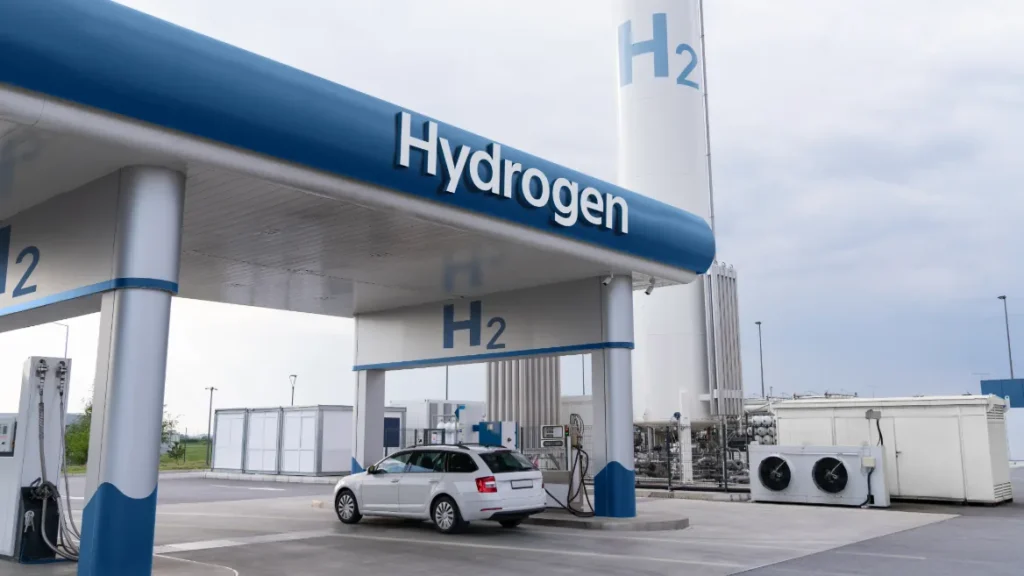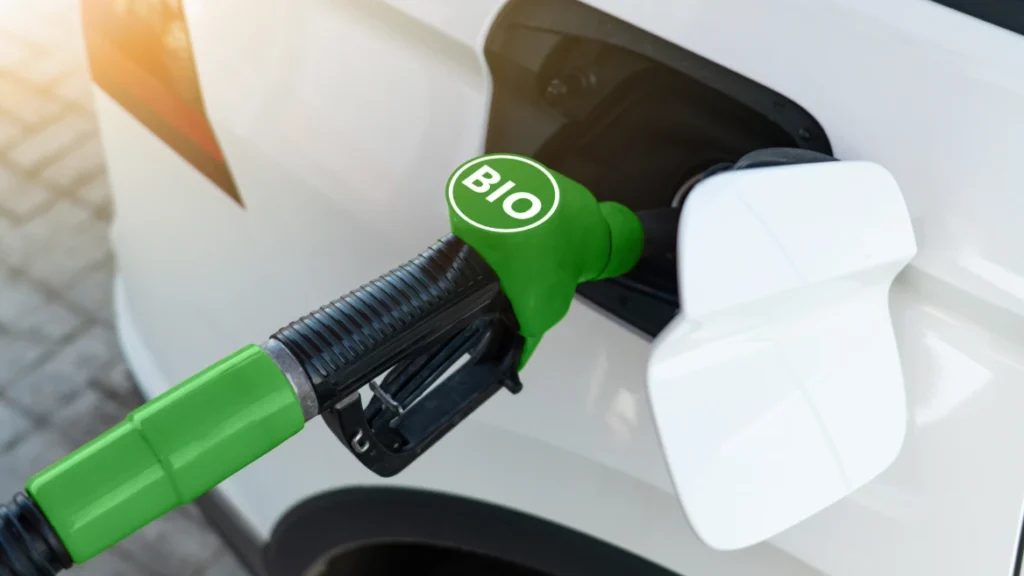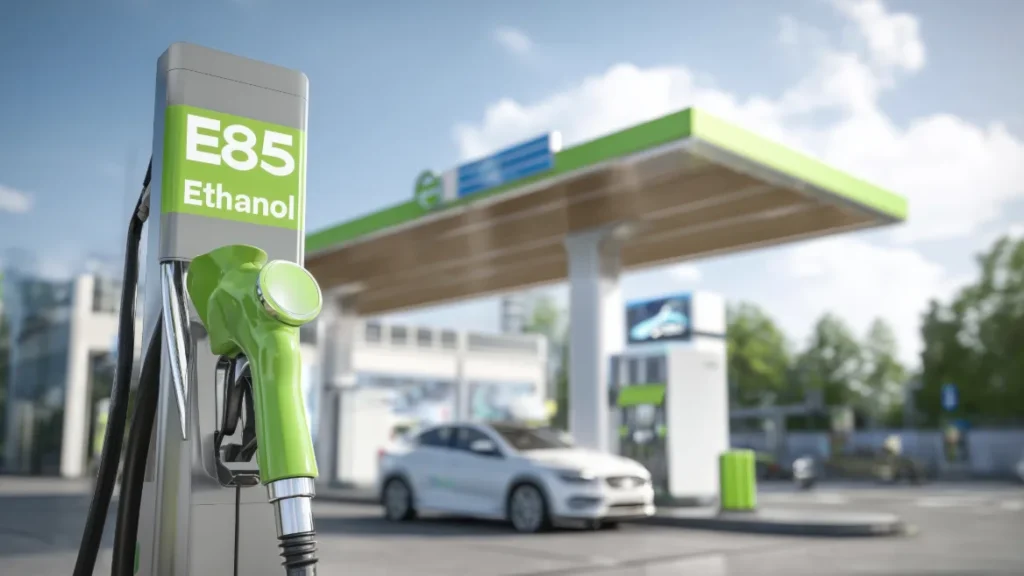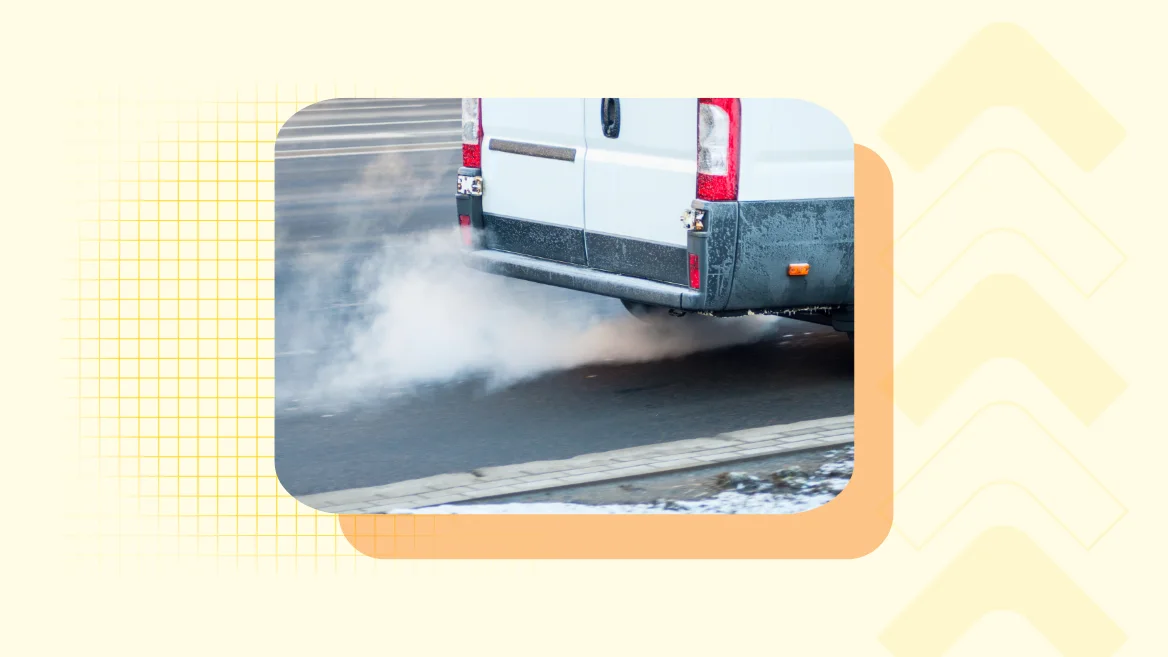Fuel costs are rising, customer expectations are shifting, and low-emission zones are here to stay. For many UK couriers, switching to alternative fuels is no longer a distant idea—it’s a real consideration.
Whether you’re running a single van or managing a growing courier fleet, knowing your fuel options now can save you time, money, and hassle down the road.
Let’s look at what alternative fuels are, how they compare, and which ones could suit your routes and loads.
What we’ll cover
Get access to 15,000+ loads a day on Courier Exchange
Be your own boss. Set your own hours. Make your own money.
What are alternative fuels?
Alternative fuels are any fuels that replace traditional petrol or diesel. That includes electric, hydrogen, biodiesel, ethanol, propane, and natural gas options.
They’re often cleaner to burn and better for the environment. But that doesn’t always mean they’re cheaper, or suitable for every journey.
Unlike standard fuels, many clean fuels rely on new infrastructure. Charging points, fuelling stations, or vehicle conversions can all affect whether a particular fuel is right for you.
Why couriers are considering alternative fuels
For owner-drivers and courier firms alike, the switch to alternative fuels is picking up pace. There are a few reasons for that:
- Fuel prices remain unpredictable.
- The 2030 UK ban on new petrol and diesel vans is fast approaching.
- More work is coming from clients who prioritise sustainable logistics.
If you’re running loads through congestion charge zones, or working with customers asking for low-emission deliveries, running on cleaner fuel could help you stand out.
There’s also the simple fact that eco-friendly van upgrades are becoming more accessible, such as engine remapping. Even if you’re not ready to make the switch today, it’s smart to understand what’s out there.
The main types of alternative fuels for vans
There’s no one-size-fits-all answer. Each alternative fuel comes with its own trade-offs. Here’s how they compare for couriers.
Electric

Electric vans are the most popular option. They offer zero tailpipe emissions and lower running costs.
EVs suit city-based loads and local deliveries. You’ll save on courier van diesel costs, and many low-emission zones let electric vehicles through at no extra charge.
But range is still a concern. With a full load, electric courier vans may only travel 100–200 miles. Long charging times can disrupt your schedule too.
If you mainly run return courier loads across the UK, you might find the downtime a deal-breaker. That’s where plug-in hybrids or range-extended options can help bridge the gap.
Hydrogen

Hydrogen vans are rare in the UK, but they’re promising. Like electric vans, they don’t produce any exhaust emissions. Unlike EVs, they can refuel in minutes.
That makes them ideal for long-distance courier vans that need to keep moving.
The challenge? Infrastructure is limited. Hydrogen stations are few and far between. Vans are also expensive, and there aren’t many used models on the market.
That said, the government has committed over £4 billion towards a national hydrogen economy by 2030. So, the future looks brighter.
Biodiesel

Biodiesel is a green fuel made from used cooking oil, animal fats, or vegetable oils. You can use it in many modern diesel engines, though it’s best to check your manufacturer’s advice.
Because it’s made from renewable sources, biodiesel has a lower carbon footprint than standard diesel. Some drivers even produce their own.
It does cost more—usually adding several pounds per tank—and not all filling stations supply it. But if you’re interested in a cleaner transition and already running a diesel van, it’s a low-barrier option.
Biodiesel also suits anyone considering a second-hand courier van, where hybrid or EV options might not be available.
Ethanol

Ethanol is widely used in the UK, often as a blend in petrol (e.g. E10). It’s made from crops like corn or sugarcane and burns cleaner than standard fuels.
You’ll already be using ethanol blends in most forecourt petrol, so there’s nothing new to learn here unless you’re looking at dedicated ethanol-powered vehicles.
Pure ethanol vans are less common in the UK, and large-scale production requires a lot of farmland. But for some businesses, especially those with agricultural links, it’s a reliable eco-friendly van fuel.
Other fuels at a glance
Some alternative fuels don’t warrant a full van fleet switch, but they’re still worth knowing.
- Natural gas (CNG/LNG): Still fossil-based, but burns cleaner than diesel. Costs less, though vehicles and stations are limited.
- Propane (LPG): Cheap and clean-burning. Available in some regions, but you’ll need to pay for a conversion or buy a propane-ready van.
Which alternative fuel is best for your courier business?
It depends on what you move, where you go, and how often you drive.
Here’s a rough comparison based on running costs, emissions, and refuelling needs:
| Fuel type | Emissions | Refuelling time | Range | Cost per mile |
|---|---|---|---|---|
| Electric | Zero tailpipe | Long (1–8 hrs) | 100–200 miles | Low |
| Hydrogen | Zero tailpipe | Short (5 mins) | 300+ miles | High |
| Biodiesel | Low (renewable) | Short (same as diesel) | Similar to diesel | Moderate |
| Ethanol | Medium (blended) | Short | Similar to petrol | Low |
| Natural gas | Medium | Medium | Moderate | Low |
| Propane | Low | Short | Moderate | Low |
Electric vans suit city loads and fixed routes. Hydrogen may be a better fit for longer hauls, though options are limited for now.
Biodiesel offers an easy swap for diesel drivers. Ethanol and LPG are niche but can be cost-effective, depending on availability.
Challenges of switching to alternative fuels
Adopting alternative fuels comes with some hurdles.
You’ll need to think about:
- Vehicle purchase or conversion costs
- Limited fuelling or charging infrastructure
- Uncertain resale value
- Insurance costs or van warranty exclusions for some fuel types
Depending on the fuel, you might also need a new routine for maintaining your courier van. Electric vans, for instance, have fewer moving parts but require specialist servicing.
There are also practical concerns around temperature-controlled transport, especially if you’re delivering perishable goods. Some fuel types impact vehicle payload and power output, so always test before committing.
Final thoughts: is now the time to switch?
You don’t need to change everything overnight. Start by reviewing your routes, average mileage, and delivery zones.
If you’re often hiring a courier van, try electric or hybrid models to get a feel for them. Use the experience to plan for future upgrades.
You can also stand out to clients who care about carbon impact—especially when competing for subcontracting courier work.
Grants and schemes may help with vehicle costs too. Keep an eye on government incentives, and look into tools like courier fuel cards to help with budgeting.
Even small changes can help reduce your fleet’s fuel consumption over time.
Get access to 15,000+ daily loads on Courier Exchange
Be your own boss. Set your own hours. Make your own money.
FAQs about alternative fuels
What is the cheapest alternative fuel for courier vans?
Propane and natural gas are among the cheapest courier fuel options. Electricity also has low running costs, especially if you charge off-peak. Just remember to factor in vehicle purchase or conversion costs.
Are alternative fuels better for the environment?
Most alternative fuels produce fewer emissions than petrol or diesel. Electric and hydrogen are cleanest at the tailpipe, while biodiesel and ethanol use renewable sources. Actual environmental benefit depends on how the fuel is produced.
Can I use biodiesel in any diesel van?
Some diesel vans can run on biodiesel without modification, but it’s best to check your van’s handbook. B20 (20% biodiesel) is commonly supported. Running higher blends or pure biodiesel may need engine adjustments.
What’s the range of an electric van with a full load?
Range depends on the van model, battery size, and payload. Most electric vans offer 100–150 miles on a single charge with a moderate load. Cold weather and heavy cargo can reduce this range.
Will I be forced to switch from petrol or diesel by 2030?
From 2030, you won’t be able to buy new petrol or diesel vans. But you can still run your current van or buy second-hand. Keep an eye on future changes, especially if you’re applying for courier driver jobs or updating your courier fleet.




